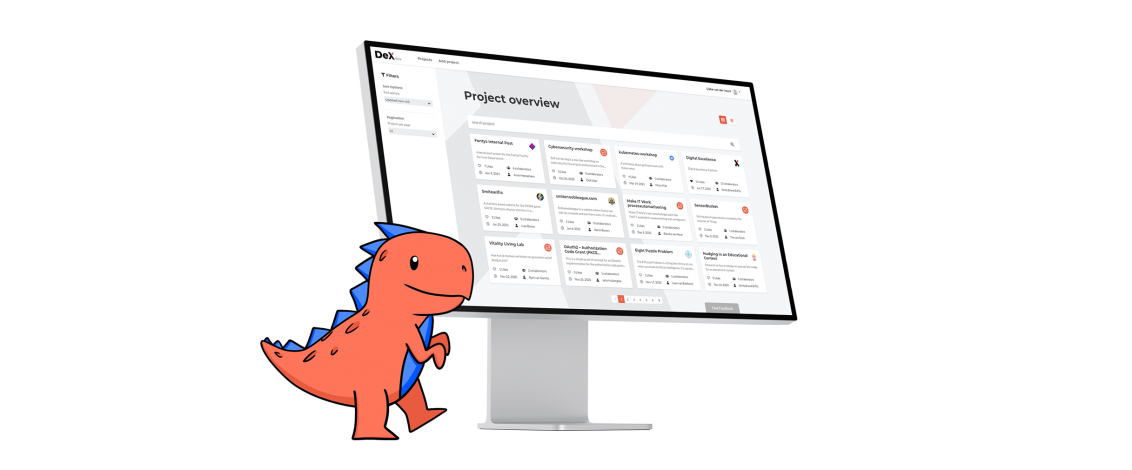DEX
Digital Excellence Platform
Employees and students at FHICT produce a wide range of impressive work, including software solutions, scripts, research papers, theses, and project ideas. However, much of this work remains private and unknown to the broader community. The DeX-platform (DeX) aims to address this issue by making these contributions more discoverable, thereby enhancing collaboration among creators. DeX is designed to aggregate work from various sources, surpassing the limitations of platforms like GitLab, which is primarily used for software development. By encompassing diverse types of content and sources, DeX seeks to provide a comprehensive repository of the community's innovative output.
The benefits of DeX are multifaceted. It increases the visibility of projects, allowing more people to discover and engage with innovative solutions. The platform facilitates easier collaboration by connecting potential partners, fostering an open-source community spirit. Additionally, DeX helps users maintain a clear overview of their work, useful for portfolios and classroom examples. Administrators can more readily identify and showcase outstanding projects for promotional purposes. By centralizing project proposals and offering personalized suggestions, DeX ensures that users stay informed about relevant developments and opportunities, promoting an interconnected and dynamic FHICT community.

Dive deeper
The platform was separated in the backend and the frontend. The backend uses .NET Core 3.1 and makes use of other frameworks like IdentityServer 4 to connect with other identity providers such as Fontys or Surf.
The frontend is built in Angular 9 and is set up using a modular architecture.
Both of these projects have full continuous integration set up using Github Actions, with features like automatic code coverage, integrated SonarQube, automatic integration tests using Postman, unit tests, and more! We've also set up automatic deployment by using Github Actions and Docker. Upon pushing to develop, a new version is put online on the staging environment, upon pushing to master, a new production version is pushed. All of this is done automatically, without any manual intervention needed.